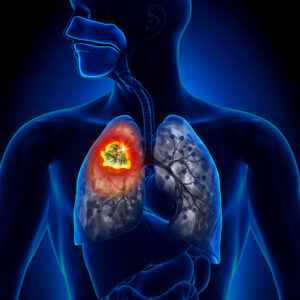lung disease disability benefits
LUNG DISEASE AND FILING FOR DISABILITY
Finding out you have a serious disease can be a difficult time. This is especially true with the ailments that will affect us for the duration of our lives. When you have a life-altering diagnosis, you will need all the support you can get. In addition to emotional support, financial support may also be necessary. If you’re diagnosed with a lung disease, it can affect your ability to work. There are multiple kinds of lung diseases and whether you qualify for lung disease disability benefits depends on the specifics of your condition.

How are lung diseases evaluated by Social Security?
– By obstruction, restriction or diffusion.
Lung disease disability and respiratory disorders are evaluated if they result is either the obstruction or restriction or interference with diffusion across the lung cell membranes. Examples of these disorders are chronic obstructive pulmonary disease, asthma, cystic fibrosis and bronchiectasis. Chronic pulmonary hypertension, respiratory failure and lung transplantation are also evaluated.
– Cancers that affect the respiratory system.
If you have cancer that affects the respiratory system, you can also be considered for disability benefits.
What are the different types of lung disease?
– Chronic Respiratory disorders.
– Asthma
– Cystic Fibrosis
– Bronchiectasis
– Chronic pulmonary hypertension.
– Lung transplant
– Respiratory failure
What are the systems of lung disease or respiratory disorders?
– Chest pain
– Shortness of breath
– Wheezing
– Coughing
– Coughing up blood from the respiratory tract
– Sputum production
– Rapid rate of breathing
– Use of accessory muscles of respiration
What documentation is needed?
– Medical evidence
The basis for any disability benefits decision rests on the medical evidence that is provided. This is no exception in lung disease disability benefits and filing for lung disease disability. This evidence will help the Social Security Administration evaluate the severity of your condition. This should include your medical history and physical exam conclusions. Even if you use supplemental oxygen, you will still need to provide medical evidence.
– Medical imaging evidence.
You also need to provide any x-rays and computerized tomography that you have received. These tests will help back up your case for lung disease disability benefits. The more medical evidence that you provide, the better for your case. It’s important to include all pertinent information to help the Social Security Administration make the right decision for your specific condition.
– Pulmonary function tests.
These tests will also help back up your case. Depending on your specific condition, you may participate in different tests. You may have to complete a test that measures the ventilation of the lungs, one that measures gas diffusion, one that measures the partial pressure of the gases in the arterial blood or one that measures oxygen saturation of hemoglobin.
Spirometry measures how well you move air in and out of your lungs and is a three part test. This is a great test to have done to help accurately access the performance of your lungs. This one will help you with your case as you move forward with disability claims.
Additional conditions which must be met in order to receive lung disease disability benefits:
– Your condition must be considered severe.
At the time of filing for lung disease disability benefits, your condition must be considered severe. This means that it will need to be anticipated to endure for at least 12 months or be terminal. This is proven with medical documentation of your diagnosis.
– You have to be unable to work.
The main reason that you’re filing for lung disease disability benefits is because you need supplemental income because you are not able to perform your job any longer. Your condition must be severe enough to prevent you from working and earning money on your own.
– Your condition must meet requirements in the bluebook on the Social Security website.
Further specifics can be found on the Social Security Administration’s website. The website includes a long list of conditions that qualify for disability benefits. This is a mostly inclusive list, but if you have a condition that is not specifically listed, you may still be able to receive disability benefits. You must prove that your condition is equivalent to another condition that is listed.
As you move forward in filing for lung disease disability benefits, you may want to speak to a lawyer that specializes in this area. It’s natural to have questions about the process and how to move forward in the best manner possible. Whether you are moving through the process for the first time or need to appeal a decision, a lawyer is a valuable resource to help you through your case and succeed in receiving benefits. Contact us today with any questions!
